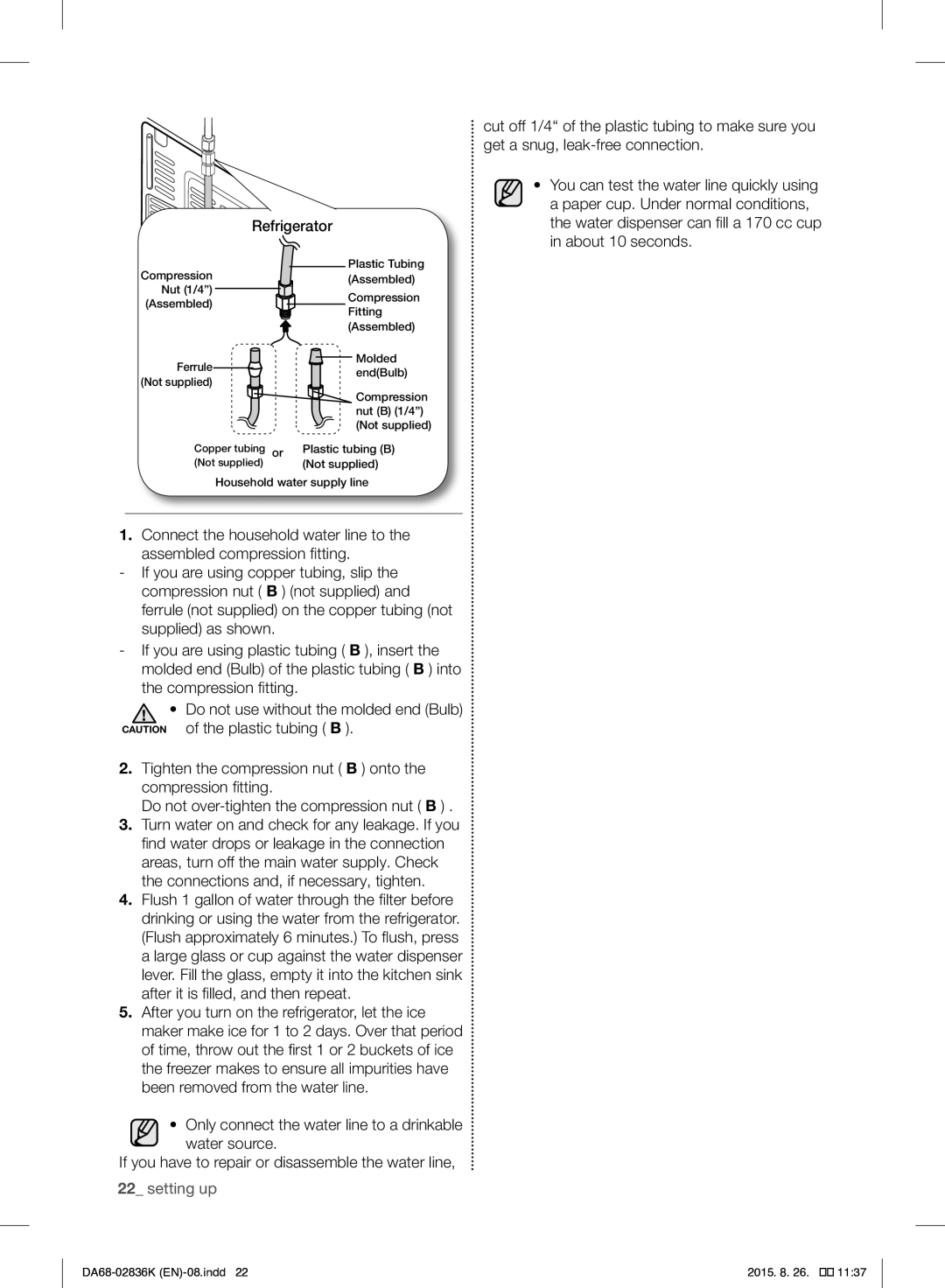
Refrigerator
Plastic Tubing
Compression |
| (Assembled) |
Nut (1/4”) |
| |
| Compression | |
(Assembled) |
| |
| Fitting | |
|
| |
|
| (Assembled) |
Ferrule |
| Molded |
| end(Bulb) | |
(Not supplied) |
| |
|
| |
|
| Compression |
|
| nut (B) (1/4”) |
|
| (Not supplied) |
Copper tubing | or | Plastic tubing (B) |
(Not supplied) |
| (Not supplied) |
Household water supply line
1.Connect the household water line to the
assembled compression fitting.
•Do not use without the molded end (Bulb) CAUTION of the plastic tubing ( B ).
2.Tighten the compression nut ( B ) onto the compression fitting.
Do not
3.Turn water on and check for any leakage. If you find water drops or leakage in the connection areas, turn off the main water supply. Check the connections and, if necessary, tighten.
4.Flush 1 gallon of water through the filter before drinking or using the water from the refrigerator. (Flush approximately 6 minutes.) To flush, press a large glass or cup against the water dispenser lever. Fill the glass, empty it into the kitchen sink after it is filled, and then repeat.
5.After you turn on the refrigerator, let the ice maker make ice for 1 to 2 days. Over that period of time, throw out the first 1 or 2 buckets of ice the freezer makes to ensure all impurities have been removed from the water line.
•Only connect the water line to a drinkable
water source.
If you have to repair or disassemble the water line,
22_ setting up
cut off 1/4“ of the plastic tubing to make sure you get a snug,
•You can test the water line quickly using a paper cup. Under normal conditions, the water dispenser can fill a 170 cc cup in about 10 seconds.
2015. 8. 26. |
��![]()
![]()
![]() 11:37
11:37
